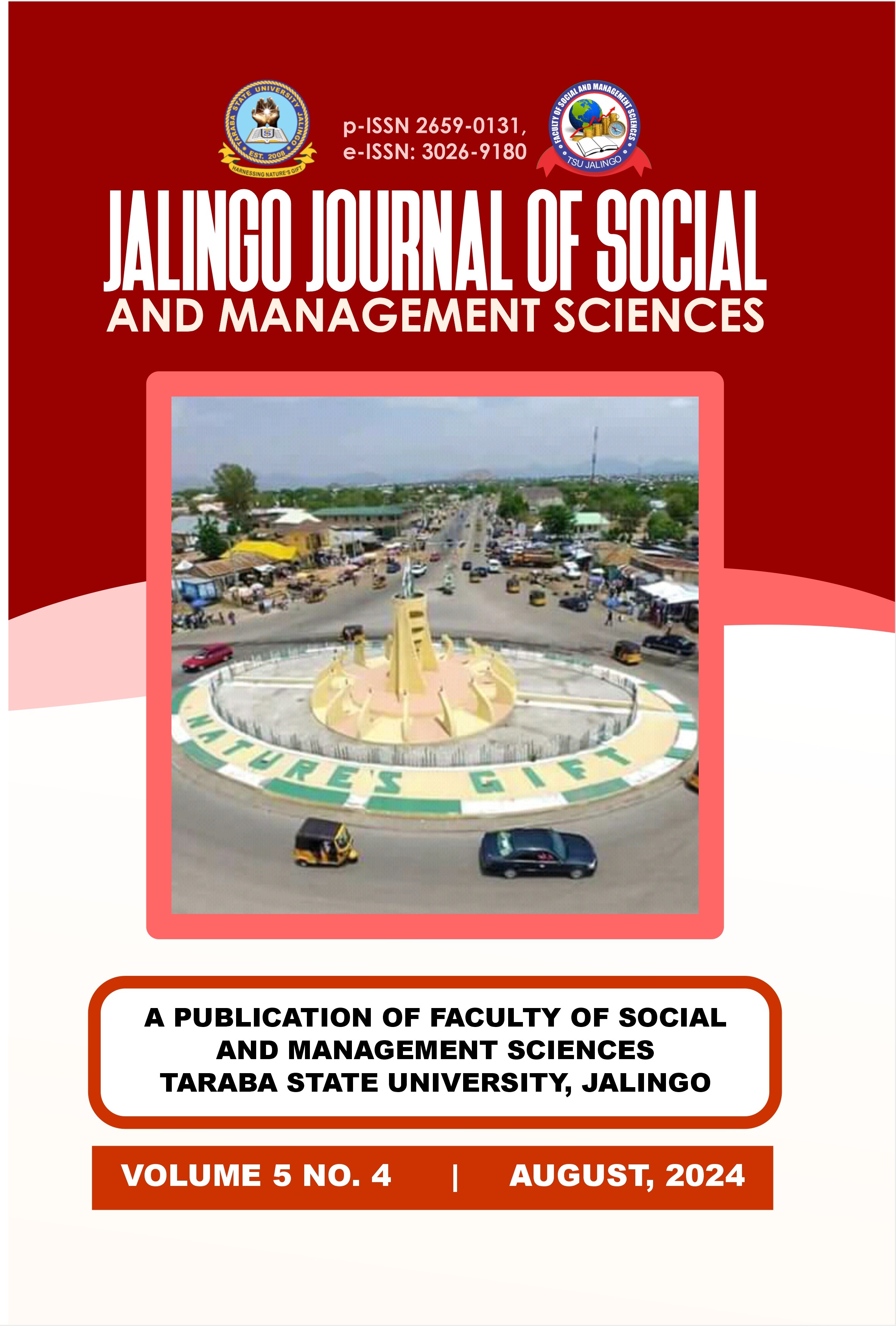Criminality and Gender: An Investigative Study of Female Offenders in Rivers State, Nigeria
Keywords:
Crime, criminality, deviant behavior, men & womenAbstract
Women criminality has been on increase in the last decade, which was hitherto not so in the study of crime. Prior studies have focused more on criminality of men with little or no attention being made to examine the patterns, trend, and control of women criminality, especially in Rivers State, Nigeria, where there has been increase in crime and criminality in the recent past. This study, therefore, investigates and analyzes the patterns, trend and control of women criminality in Rivers State. Masculinity and Opportunity theories provided the framework. A cross-sectional survey design was adopted. The four correctional centers in Rivers State were
purposively selected: A total of 222 respondents were drawn and randomly selected for proportional administration of questionnaire using Yamane’s (1967) formula. Eight key informant interviews were also conducted among correctional centre officers including one
judge, one magistrate and two lawyers. Quantitative data were analyzed using descriptive statistics. The qualitative data were content-analyzed. Most of the offences committed before incarceration were armed robbery, attempted murder and domestic violence, drug trafficking, manslaughter, murder, assault, house and store breaking, theft/stealing, human trafficking, drug, forgery related and other crimes. The causes of their crimes were associated with greed, poverty and unemployment; these were significantly related to the crimes committed by women inmates. Findings on the current control measures for crime in the correctional centers revealed that it started with apprehension, prosecution and imprisonment (76%). Increasing rate of women criminality was associated with socioeconomic and societal structural conditions. The study recommends among others that there is need to address the fundamentals of gender equality in employment, while also promoting women empowerment. It also recommended that the criminal justice officials should not be lenient in the administration of criminal justice. By so doing, women criminality would be drastically reduced.

Downloads
Published
Issue
Section
License
Copyright (c) 2024 JALINGO JOURNAL OF SOCIAL AND MANAGEMENT SCIENCES

This work is licensed under a Creative Commons Attribution-NonCommercial 4.0 International License.
